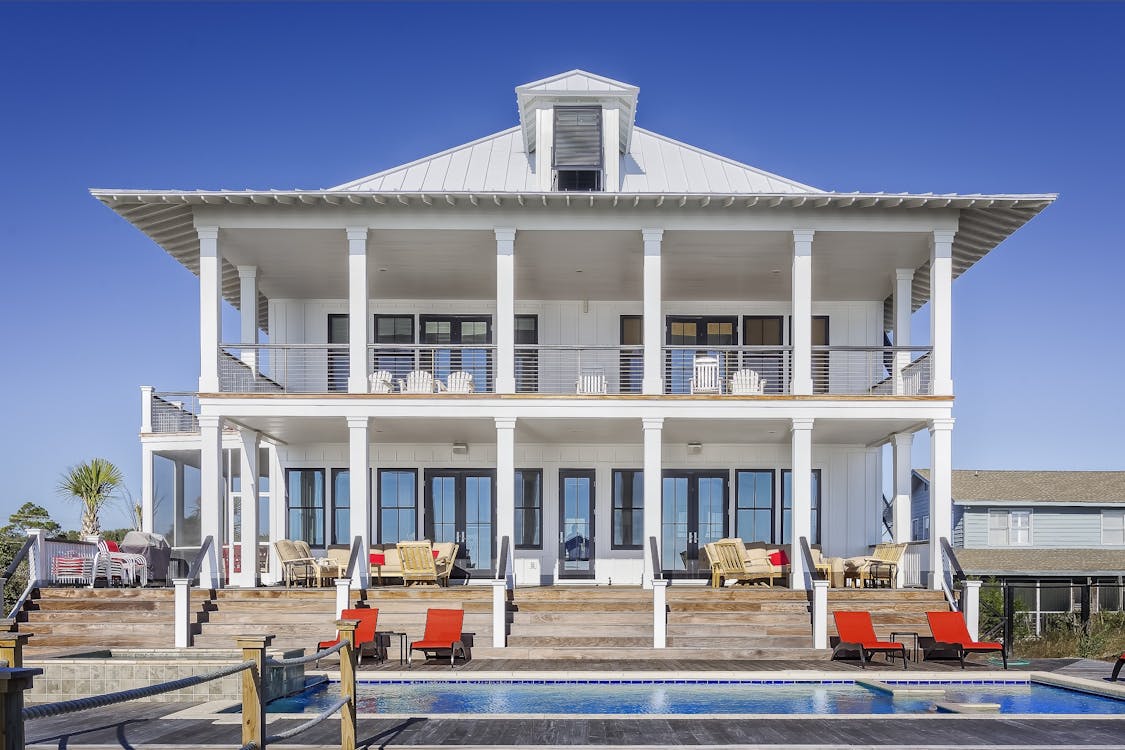Vacation Home Insurance
May 24, 2023
 Vacation homes require a special type of insurance–one that protects your vacation home but doesn’t overlap with your already existing homeowners insurance coverage. Here are some things to consider when insuring your vacation home.
Vacation homes require a special type of insurance–one that protects your vacation home but doesn’t overlap with your already existing homeowners insurance coverage. Here are some things to consider when insuring your vacation home.
What is covered under your primary residence’s homeowners insurance?
Most homeowners insurance policies provide limited coverage for personal property at an additional residence. However, if your coverage needs for your vacation home exceed this amount, you’re going to want to fill this gap by purchasing a policy that will cover your vacation home in its entirety. One way to do this is to purchase a dwelling fire policy.
What is a dwelling fire policy?
A dwelling fire policy is specially designed for a second home in that it provides coverage for the dwelling itself, along with your personal property. There are three types of dwelling fire policies:
- Standard form: This covers the building and contents from the perils of fire and lightning, and the removal of property from the dangers of fire and lightning
- Broad form: This covers your property from the above perils, plus windstorm, hail, explosion, riot and civil commotion, damage by aircraft or by vehicle, and smoke
- All-risk form: This covers the property from damage for all perils that are not specifically excluded on the policy
Just like your primary homeowners insurance policy, coverage for certain types of personal property may be limited (e.g., jewelry, money).
What about liability insurance?
Your primary residence’s homeowners policy will provide liability coverage for you at your vacation home. In fact, it will provide liability coverage for you anywhere in the world. However, if you need more liability coverage, you may want to either increase the limits on your primary residence’s policy or purchase an umbrella policy.
How much does it cost?
A dwelling fire policy is usually less expensive than your primary residence’s homeowners insurance since it usually doesn’t carry liability insurance. However, if your vacation home is located in a high-risk area (e.g., coastline, mountainside), if you rent your vacation home to others, or if you don’t spend a lot of time there, your premiums may be higher. The good news is that you can usually save on your premiums by insuring your vacation home with the same company that provides coverage for your primary residence.
A vacation home is a wonderful luxury. As with any home, it’s important that your investment is properly protected with the right insurance. Consult your insurance agent if you have any questions regarding the type of coverage that you have or to determine if your liability coverage is sufficient.
For more insights and resources, be sure to sign up for our Weekly Market Commentary. Follow our YouTube channel where we regularly post our Epic Market Minute videos. Follow us on LinkedIn, or like us on Facebook. And as always, please don’t hesitate to reach out to a dedicated service professional at Epic Capital.
Tags: Certified Financial Planner Charlotte NC, Insurance, Investing, Personal Finance
More Insights
A thoughtful retirement strategy may help you pursue your many retirement goals. That strategy must consider many factors, and here are just a few: your income needs, the order of your withdrawals from taxable and tax-advantaged retirement accounts, the income tax implications of those withdrawals, and sequence of return risk.
Losing a spouse is a stressful transition. And the added pressure of having to settle the estate and organize finances can be overwhelming. Fortunately, there are steps you can take to make dealing with these matters less difficult.
Ever hear of critical illness insurance? This isn’t standard-issue disability insurance, but a cousin of sorts. With people living longer, it is a risk management option entering more people’s lives.
Following Iran’s missile and drone strikes on Israel over the weekend and the apparent escalation likely in any Israeli response, stocks fell sharply during Monday’s trading session. We examine the latest developments in the Middle East conflict, how stocks have reacted historically to geopolitical events, and the possible impact on markets moving forward.
Did you buy U.S. Savings Bonds decades ago? Or did your parents or grandparents purchase them for you? If they’re collecting dust in a drawer, you may want to take a look at them to see if any of your bonds have matured. If your bonds have matured, that means they are no longer earning … Continue reading “How US Savings Bonds Work”
Services
Epic Capital provides the following comprehensive financial planning and investment management services: Learn More >


 Top of Page
Top of Page











